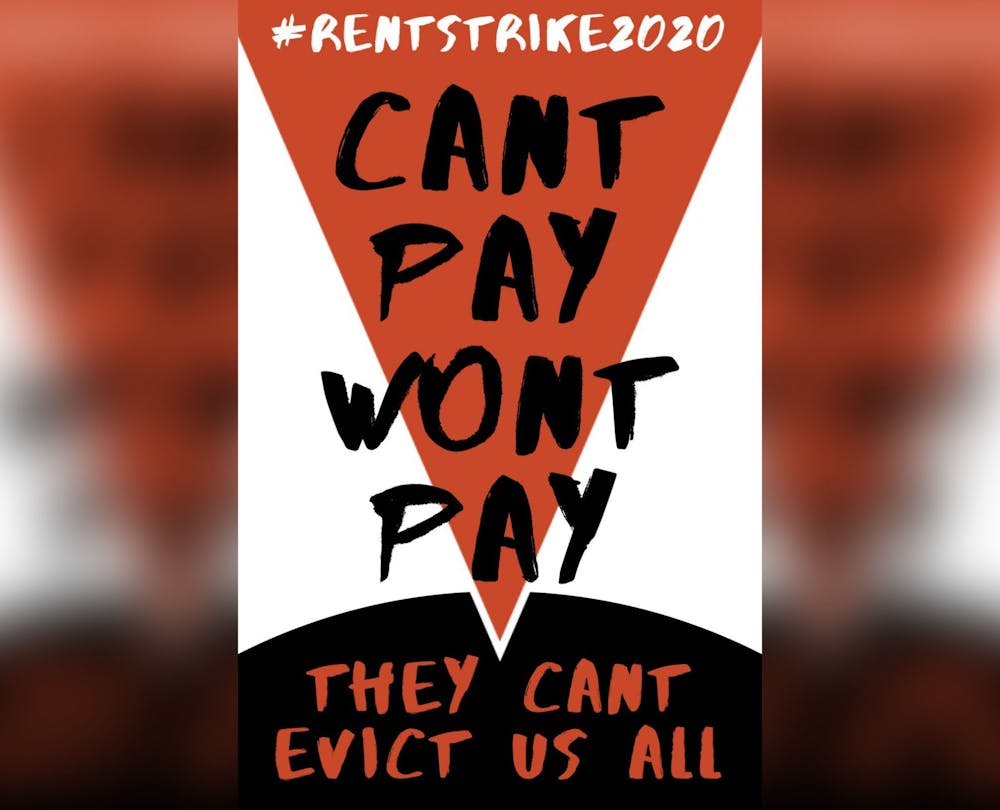The COVID-19 crisis is more than a biological pandemic. It is an economic emergency that affects everyone in the world. More than 16 million Americans have filed for unemployment in the past three weeks — the largest numbers ever seen in the U.S. in such a short timespan.
As millions of people lose their regular income, making rent payments and other necessities may be out of reach. To help themselves, many people must look to direct action and organize rent strikes. Many tenants around the country are organizing rent strikes, or collective agreements among tenants to refuse to pay rent for the duration of this crisis.
Other governments around the world have taken helpful steps to protect their people from homelessness and poverty.
France has suspended mortgage payments, and Spain is moving toward a permanent system of universal basic income. But since our leaders in Washington, D.C. and the corporations they serve are more concerned with the well-being of large corporations than the wellness of average individuals, nothing like that is in America's future. For the most part, we are on our own.
The only assistance our government has offered is more a gift to the ultra rich than anything else. America’s largest corporations are on track to receive around $6 trillion in bailout money, according to director of Trump’s United States Economic Council Larry Kudlow. Meanwhile the COVID-19 stimulus package gives average Americans, with the exception of dependents over the age of 16, a mere $1,200 — worth just over a month’s wages at the federal minimum rate. This sum is already too small for most families during a non-crisis month, and this crisis is certainly going to last longer than that.
Bloomington has some of the highest housing prices in the state of Indiana, and members of our community will be in an especially precarious position because of the COVID-19 crisis. Landlords have very little to offer their tenants in the realm of assistance. My own landlord, CS Property Management, has complied with the ban on late fees but offered nothing else. Bills are still due, and no legislation has changed that. These mounting expenses will surely send many who have lost their stream of income into debt.
Direct action could be the only option for Bloomington renters. As the Indiana Daily Student reported Monday, housing advocates in Bloomington have begun organizing tenants of Hunter Properties to form a tenants union.
Many of the dangers associated with rent strikes don’t apply during the crisis. Evictions have been temporarily halted in Indiana, so there is little risk of being thrown out right now. A wide base of support could potentially deter landlords from taking legal action after the moratorium is lifted.
The first step to organizing is communication. Renters will need to contact their fellow tenants to discuss their situation and determine if a rent strike is the best course of action. Once collective demands are determined, the tenants should then contact the landlord. Any requests brought to a landlord will have much more force when brought by a collective rather than an individual.
The Hunter Properties organizers devised a list of demands that include among other things, waiving the rent for students, hourly workers and any others who can not afford to pay rent during the crisis, committing to halt evictions for nonpayment for the year and opening vacant units to those who have lost housing during the emergency.
This is a model that would be an excellent place to start for potential organizers around town. Bloomington organizers have created a sample petition for anyone to customize and distribute.
Contact your fellow tenants, figure out what your specific needs are and adapt. You shouldn’t be forced to choose between buying the things you need and throwing money at property owners. Taking things into our own hands is our best bet to make it through the crisis. When our leaders abandon us, the only people who can take care of us is us. The networks we build during crises will persist beyond and lay the groundwork for a better, more humane future.






